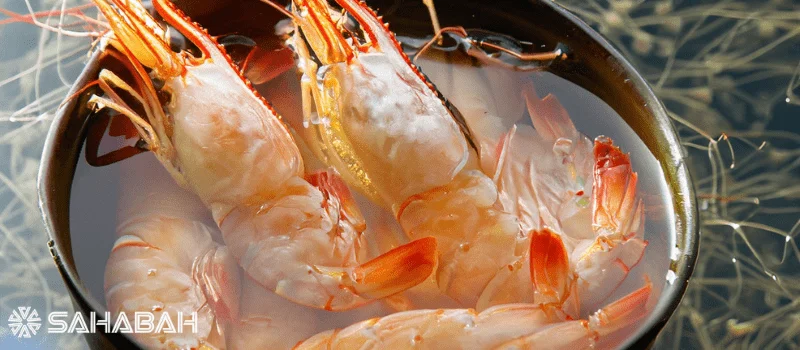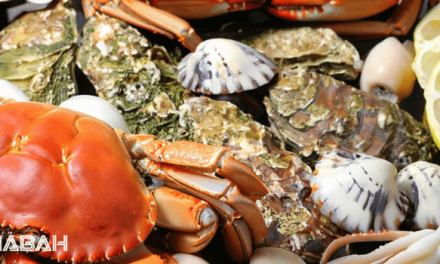As a practicing Muslim, I have always been conscious of the dietary restrictions imposed by my faith. Recently, I stumbled upon a perplexing question that left me intrigued: Is shrimp halal or haram in Islam? Join me as we delve into the depths of this seafood dilemma, exploring the various perspectives and interpretations surrounding this contentious issue.
Weighing Islamic Law on Shrimps
Halal refers to anything that is permissible to eat or engage in under Islamic law. The criteria for halal foods include:
- The food must come from a permissible source
- It cannot contain any haram (forbidden) ingredients
- The food must be prepared and processed per Islamic guidelines
There is some controversy around whether shrimp is considered halal or haram in Islam.
Some of the key questions in this debate include:
- Are shrimp categorized as fish under Islamic law?
- Does shrimp qualify as a seafood that is halal to eat?
- Do the methods of catching and preparing shrimp comply with halal requirements?
There are a few reasons why most Muslims consider shrimp to be halal even though they are not scaled fish. Shrimp do live in water and have a primitive spinal cord instead of a backbone, which meets the requirements of halal food.
This article will examine the evidence and rationale used by different Islamic scholars and schools of thought to make determinations on the permissibility of shrimp according to Islamic dietary laws.
Background on Islamic Dietary Laws
Islam has clear guidelines regarding what foods and drinks are permissible (halal) and impermissible (haram) for Muslims to consume. Some of the prohibited items include:
- Pork and pork products
- Alcohol and other intoxicants
- Meat that is not slaughtered according to Islamic procedure
In Islam, most foods are considered Halal, or permissible, except the following sources and their by-products:
- Carrion
- Swine/Pork and its by-products
- Animals improperly slaughtered or dead before slaughtering
- Intoxicants and alcohol
Foods from the sea are generally halal, with a few exceptions.
Among the marine animals that are halal to eat are:
- Fish
- Shrimps
- Whales
- Octopus
- Lobsters
The main forbidden sea creatures are oysters, dolphins, crabs, and sharks. The permissibility also depends on how the seafood is caught and processed.
Overall, the general principles state that any food consumed must be pure, clean, and nourishing for Muslims.
Arguments Why Shrimp is Halal
There are several reasons why many Islamic scholars and schools of thought have ruled shrimp to be halal and permissible to eat:
-
Shrimp are considered a type of fish
Shrimp are classified as fish by most Muslim scholars. Alligators and frogs are also classified as fish, and they are halal to consume.
-
Shrimp do not fall under haram categories – Shrimp do not fall under the common categories that explicitly make seafood forbidden – they are not toxic, dangerous, or hazardous to health.
-
Shrimp anatomy complies with requirements
Shrimp have an exoskeleton and flesh like fish. They live in water and don’t have flowing blood like mammals. This makes their meat permissible.
-
Shrimp are killed and prepared properly – The methods used for catching, cooking, and processing shrimp follow Islamic guidelines, which certify them as halal.
In summary, shrimp qualify as a halal seafood based on their aquatic origins, anatomy, and preparation methods according to those who consider it permissible.
Arguments Why Shrimp is Haram
On the other hand, there are also opinions advocating that shrimp is haram and prohibited under Islamic law:
-
Shrimp resemble bottom-feeders – According to a hadith.
The Messenger of Allah (S) said: “Eating any fish that does not have scales is unlawful.” Shrimp do not have scales and are similar to catfish and other bottom dwellers, which are haram.
-
Shrimp eat impure substances – Shrimp feed on residual, impure matter making their flesh impure.
Shrimp eat waste materials and dead plants/animals, thus their flesh is impure for consumption.
-
Non-scaled fish meat is impermissible – Some scholars strictly adhere to the interpretation that lack of scales makes shrimp haram.
Hanafi and Maliki schools prohibit any sea animals without scales like shrimp, oysters, lobsters. They are considered haram.
-
Shrimp preparation may not be halal – The processes of catching, storing, cleaning and cooking shrimp may not satisfy halal guidelines.
In summary, shrimp’s bottom-feeding habits, lack of scales and questionable preparation raise doubts about its permissibility for some strict Islamic experts.
Are Shrimps Halal FAQs
Are shrimps considered halal in Islam?
Yes, shrimps are generally considered halal in Islam. They are a type of seafood that is permissible to eat for Muslims.
Is shrimp halal or haram?
Shrimp is considered halal in Islamic dietary laws, so it is permissible for Muslims to consume.
How do Islamic scholars view the halal status of shrimp?
The majority of Islamic scholars and schools of thought agree that shrimp is halal and permissible to eat.
Can Muslims eat prawns?
Yes, Muslims can eat prawns as they are considered halal under Islamic dietary guidelines.
Is lobster halal?
Lobster, being a type of crustacean, is generally considered haram (forbidden) in Islam. It is not considered halal for consumption.
What about other types of shellfish like crab and octopus?
Most Islamic scholars consider shellfish like crab, octopus, and squid to be haram (forbidden) to eat.
Are there any specific rules for the slaughter of seafood to make it halal?
No, unlike land animals, seafood does not require specific slaughter methods to be considered halal. Generally, seafood is halal as long as it is not haram in and of itself.
Can farmed seafood be considered halal?
Yes, farmed seafood can be considered halal as long as it is from a permissible species and meets the general halal criteria.
Are there any specific requirements regarding the type of fish that is considered halal?
According to Islamic dietary laws, fish with scales are generally considered halal. However, some scholars have different interpretations, so it’s advisable to follow the opinions of knowledgeable scholars in these matters.
Is there a halal certification for seafood?
Yes, there are halal certifications for seafood, just like for other food products. These certifications ensure that the seafood has been prepared and processed according to Islamic guidelines.
Conclusion
In conclusion, there are conflicting perspectives among Islamic scholars regarding the permissibility of shrimp according to Islamic dietary laws.
The key points of debate include:
- The classification of shrimp as a fish versus a bottom-dweller
- Whether lack of scales makes shrimp’s flesh impure
- The shrimp’s feeding habits and anatomy
- The method of catching, killing and preparing shrimp
As HalalWisdom summarizes:
There is a difference of opinion among scholars in whether shrimp is halal or haram. Both opinions have valid evidence from Quranic verses and hadiths.
While the majority of scholars and schools of thought deem shrimp to be halal, some groups prohibit it due to strict interpretation of scriptures and dietary laws.
Based on the evidence, shrimp does seem to qualify as a halal seafood if it is caught and prepared properly according to Islamic guidelines. But the debate remains open for continued analysis and discussion among Muslim experts.





